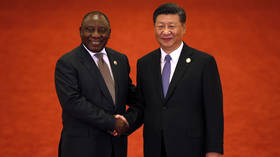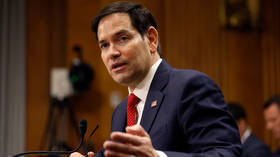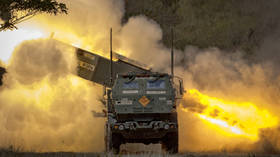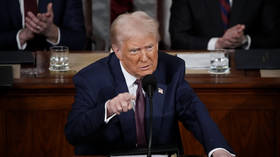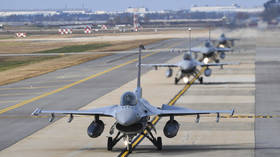NATO’s bid for global dominance could lead to new Cuban missile crisis - top Russian senator
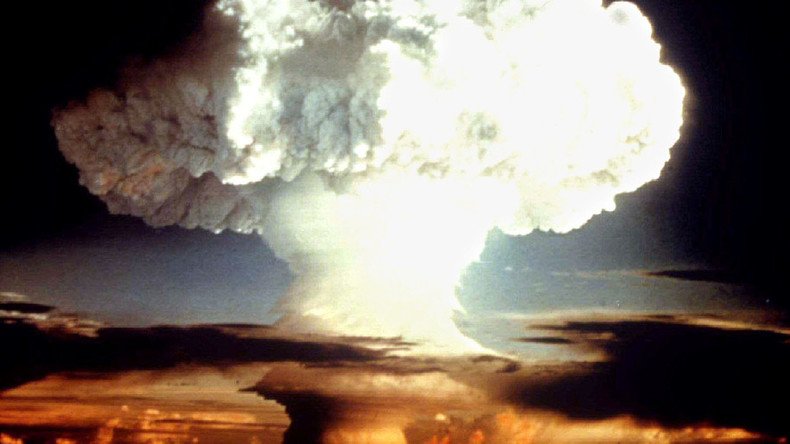
The policy of one-sided military dominance exercised by the US and its NATO allies could cause a major standoff similar to the Cuban missile crisis of the early 1960s, the head of the Russian Federation Council’s International Affairs Committee has warned.
Though the world is not currently facing the threat of a new nuclear crisis, Russia’s opponents could make such a situation a reality, senator Konstantin Kosachev said in a major interview with popular daily Izvestia.
Kosachev noted that global security has passed through three stages and is currently at the beginning of a fourth period. The first stage took place in the 1950s and 1960s, when the national security of a state or group of states was secured by pure military dominance. Very soon this approach became universal and all major nations became involved in the arms race, perfecting their weapons systems and creating military blocs.
The second stage lasted throughout 1970s and 1980s, when nations understood the futility of their efforts to become the strongest and instead started to limit each other’s military might through international treaties. This was the period of agreements securing the global balance of forces.
The third period started with the collapse of the Soviet Union and the Warsaw Pact. In the Paris Charter of the 1990s, world powers agreed to maintain the logic of the second stage and build a common security system through avoiding standoffs and mutual threats, acting like equal partners.
READ MORE: US ground ops in Syria ‘illegal’, may lead to ‘unpredictable’ consequences
However, instead of following the principles of the Paris Charter, the United States and its NATO allies have returned to the first stage and are now attempting to secure their safety through ultimate military dominance, Kosachev stated. NATO is expanding, and its members are continuously increasing their military budgets and developing new types of weapons.
The Russian official noted that this approach has de-facto introduced several classes of security for different nations that could be compared to classes of seats in a passenger jet.
“First class is for NATO and their allies, for those who support the monopolar model. Economy class is for everyone else – they are telling the world that those who do not want to join their model will have to deal with their problems independently. But the problem is that a bomb is ticking in the luggage hold and it is an equal threat to everyone,” Kosachev said. “They cannot divide security by classes and think that they remain safe once they secure exceptional safety for themselves only.”
“Western leaders constantly claim that their nations are threatened and they have to defend themselves. But it is not them who is threatened, they simply perceive Russia’s non-compliance with the imposed model of divided security and privileges to their countries as a threat,” the Russian senator told reporters.
He went on to explain that the fact that Russia does not accept the suggested model does not mean that it was threatening the United States or United Kingdom. The main threat to common security lies in NATO’s claims for global dominance together with the developing model of an exceptional place for certain nations.
“This approach prevents us from disarming the bomb in the luggage hold – to get rid of the real threats that all nations are facing and that are much more real.”
Kosachev drew attention to the fact that while the new British Prime Minister Theresa May was speaking of the threat of Russian nuclear weapons, European cities such as Nice and Munich were hit by deadly terrorist attacks. Over the past years US leaders have placed Russia alongside the Islamic State (IS, formerly ISIS/ISIL) terrorist group in the list of global threats. “We totally share their concerns about IS, but why at all did they put Russia on this list?” he asked.
READ MORE: Missile defense: no border breaking
It was NATO that clearly realized its concept of establishing its security outside its members’ borders, the senator stated. He also said that it was NATO that claimed there was not a place in the world that had no importance to it, that destabilizing the situation in any country potentially threatened NATO’s interests.
“Russia is not interfering with NATO’s affairs and we also are categorically against NATO interfering in our affairs, the world belongs to us all with all its problems. The monopolar model does not suit us and we actively disagree with it. Unfortunately, our Western partners describe this disagreement as a threat. Yes, this is a threat to their single-sided interests, but not a threat to their security and not an excuse to reject the numerous Russian proposals concerning collective global safety,” Kosachev said.
“The realization of our proposal could be a good basis for the fourth stage in post-WWII history,” he concluded.




